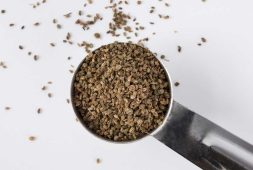
Right now, many are looking for ways to live a healthier life. With the lifestyle people lead nowadays, the chances of premature death have increased. This has concerned many individuals, which was why they have looked for ways to increase lifespan.
When it comes to longevity, many say that eating healthy and doing exercises regularly is the best way to go. Recently, however, there may be a quicker and easier way. This may be something that people would want to consider doing on a regular basis.
Experts say that walking at a brisk pace for just 11 minutes each day lowers the risk of a premature death by almost a quarter. This was according to new research made.
The team led by researchers at the University of Cambridge showed this through how one in ten early deaths could be prevented if people just managed to reach the threshold of 75 minutes per week by engaging in moderate-intensity physical activity.
The study made also showed how this would be good enough to lower the risk of heart disease and stroke, both of which have become the leading causes of death globally, as well as certain type of reported cancers.
To look deeper into amount of physical activity that is needed to have a beneficial impact on several chronic diseases and premature death, a team of researchers from the Medical Research Council (MRC) Epidemiology Unit at the University of Cambridge made a systematic review and meta-analysis. They did this by gathering and analyzing cohort data from all of the published evidence. This specific approach enabled them to collate several studies that on its own did not provide enough evidence. Some of these studies even contradicted each other. They did these in order to give better and stronger conclusions.
Overall, the researchers studied the results reported in 196 peer-reviewed articles. They were able to tackled more than 30 million participants from 94 large study cohorts. This method allowed them to produce the largest analysis ever when it comes to establishing the link between physical activity levels and the risk of heart disease, cancer, and even early death.
The researchers discovered how outside of work-related physical activity, two out of three people reported activity levels that were lower than 150 minutes weekly of moderate-intensity activity, which is what is recommended by NHS, Britain’s national health service.
Generally, the researchers also found that doing more than 150 min per week of moderate-intensity activity, the added benefits when it comes to lowering the risk of disease or early death were just very marginal. On the other hand, doing half the recommended amount came with significant benefits: by doing around 75 min per week of moderate-intensity activity, this gave the person a 23 percent lower risk of early death.
“If you are someone who finds the idea of 150 minutes of moderate-intensity physical activity a week a bit daunting, then our findings should be good news,” said Dr. Soren Brage. He is the lead author of the study published in the British Journal of Sports Medicine.
If you see that you are able to do 75 minutes of weekly exercise can be achieved, then you may want to try to start doing so and then step it up slowly and gradually to the recommended full 150 minutes, Dr. Brage even suggested.
More specifically, 75 minutes each week would be sufficient to reduce the risk of developing cardiovascular disease by as much as 17 percent and cancer by 7 percent. For certain types of cancers, the reduction was even better. This applied to the head and neck, myeloid leukaemia, myeloma, and gastric cardia cancers because these were between 14 to 26 percent lower risk. For other types such as lung, liver, endometrial, colon, and breast cancer, they saw a 3 to 11 percent risk.
“We know that physical activity, such as walking or cycling, is good for you, especially if you feel it raises your heart rate. But what we’ve found is there are substantial benefits to heart health and reducing your risk of cancer even if you can only manage 10 minutes every day,” stated Professor James Woodcock. He is from the MRC Epidemiology Unit.
The researchers also made calculations and said that if everyone involved in the studies were able to complete a full 150 min per week of moderate-intensity activity, around one in six (16 percent) early deaths could have been avoided and one in nine (11 percent) cases of cardiovascular disease and one in 20 (5 percent) cases of cancer would have been avoided as well.
Unfortunately, even if everyone managed to achieve at least 75 minutes of moderate-intensity physical activity weekly. If they had only been successful, around one in ten (10 percent) early deaths could have been prevented. One in twenty (5 percent) cases of cardiovascular disease and nearly one in thirty (3 percent) cases of cancer could have been prevented as well.
“Moderate activity doesn’t have to involve what we normally think of exercise, such as sports or running,” Dr. Leandro Garcia from Queen’s University Belfast said. “Doing activities (like dancing) that you enjoy and that are easy to include in your weekly routine is an excellent way to become more active.”
At times, all it takes is simply replacing some habits. For instance, you could try parking your car in the furthest parking spot whenever you go out and then when entering a building, you could try to walk briskly. Or, you can choose to take the stairs instead of the elevator when going up.
The research that was made was funded by the Medical Research Council and the European Research Council.



